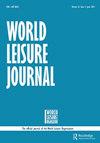挑战志愿服务中的欧洲中心主义
IF 2
Q3 HOSPITALITY, LEISURE, SPORT & TOURISM
引用次数: 2
摘要
志愿服务实践在很大程度上借鉴了基于欧洲中心概念的理论。以欧洲为中心的志愿服务模式,作为一种重要的休闲体验,已经边缘化了其他的定义和实践。因此,本文认为,虽然以欧洲为中心的概念化为理解不同文化背景下的志愿服务提供了一个有用的框架,但拥抱存在于此之外的复杂性和细微差别至关重要。因此,本文提出了志愿服务的这种主导概念的局限性的关键检查。在此过程中,本文挑战了欧洲中心主义在志愿服务和话语研究中的主导地位,并考察了志愿服务如何在不同程度上在不同的文化背景下有所不同。总的来说,这篇论文表明,志愿服务是一个比主流的欧洲中心模型所描述的更复杂、更微妙的概念。因此,本文提供了一个潜在的跳板,从中批判性地研究潜在的有争议的文化驱动的休闲意义,其中志愿服务是一个不可或缺的组成部分,赋予人们拥有自己的休闲,而不是符合欧洲中心的休闲定义。本文章由计算机程序翻译,如有差异,请以英文原文为准。
Challenging the Eurocentrism in volunteering
ABSTRACT Volunteering practices have largely drawn on theories based on Eurocentric conceptualizations. The dominant Eurocentric models of volunteering, as a significant leisure experience, have served to marginalize other definitions and practices. Thus, this paper argues that, while the Eurocentric conceptualization provides a useful framework to understand volunteering in different cultural contexts, it is critical to embrace the complexities and nuances that exist beyond this. Consequently, the paper presents a critical examination of the limitations of this dominant conceptualization of volunteering. In doing so, the paper challenges Eurocentrism domination in the studies of volunteerism and discourse and examines how volunteering can (and does) differ across cultural contexts, to varying degrees. Overall, this paper shows that volunteering is a more complex and nuanced concept than the dominant Eurocentric models depict. Consequently, this paper offers a potential springboard from which to critically examine potentially contested culturally driven meanings of leisure, of which volunteering is an integral component, empowering people to own their leisure rather than conform to Eurocentric definitions of leisure.
求助全文
通过发布文献求助,成功后即可免费获取论文全文。
去求助
来源期刊

World Leisure Journal
HOSPITALITY, LEISURE, SPORT & TOURISM-
CiteScore
3.10
自引率
6.20%
发文量
34
期刊介绍:
As the official journal of the World Leisure Organisation, the purpose of the World Leisure Journal is to stimulate and communicate research, theory, and critical thought in all areas that address leisure, including play, recreation, the arts and culture, sport, festivals, events and celebrations, health and fitness, and travel and tourism. Empirical and theoretical manuscripts, as well as position papers, review articles, and critical essays are published in the World Leisure Journal . The World Leisure Journal is international in scope, and encourages submissions from authors from all areas of the world. Comparative cross-national and cross-cultural research reports are especially welcome. For empirical papers, all types of research methods are appropriate and the subject matter in papers may be addressed from perspectives derived from the social, behavioural, and biological sciences, education, and the humanities. Both pure and applied research reports are appropriate for publication in the World Leisure Journal . In addition to original research reports and review essays, book reviews, research notes, comments, and methodological contributions are appropriate for publication in the World Leisure Journal .
 求助内容:
求助内容: 应助结果提醒方式:
应助结果提醒方式:


